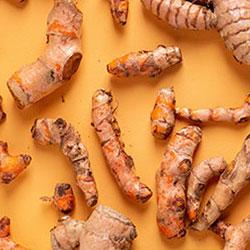Which fats and oils are best for us and why?
If you could change just one thing to make your kitchen a healthier place, I would have a very thorough look at all the fats and oils you are using and do some clearing out.
Fat is one of the key macronutrients, essential for energy storage and for many other biochemical reactions in our body. To feel at its best and to function properly, we need about 20-30% of our daily calories to come from healthy fats. Our body depends on fats to be able to absorb well fat-soluble vitamins A, D, E and K. Fats are particularly important for the development and function of the brain and retina, they maintain healthy cell membranes, provide cushioning and insulation to our internal organs and play a crucial role in hormone synthesis.
Both unsaturated and saturated fats are equally important for our health. And depending on whether you intend to use them for cooking or to add them to your food in pure form, there are a few rules to keep in mind to make sure you get the most benefit.

As with any healthy foods, fats should be as natural and as unprocessed as possible and their quality and type are very important. For example, monounsaturated fats, like those in the Mediterranean Diet, help reduce the risk of chronic disease and support longevity, while avoiding industrial transfats (often labelled as partially hydrogenated oils) at all costs should seem like a no brainer. To avoid GMOs, the oils you are using should be organic. But even with all the precautions, all-grain, seed and bean oils (even in their cleanest form possible) are still very volatile and turn rancid very easily from sunlight or heat.
There’s an ongoing debate as to which oils/fats are best for cooking and which shouldn’t be heated at all. As a general rule, it would be wise to cook at a lower heat when possible. Enough heat can damage or oxidise any oil, changing any healthy fat into an unhealthy one.
The smoke point is often mentioned as a reference meaning the point when the oil is heated and begins to oxidise and release toxic compounds. And a smoke point chart can be misleading because the more refined and processed the oil is, the higher the smoke point. Using oils with the highest smoke point, like almond, avocado or sunflower, doesn’t take into consideration how highly refined these oils may be. Unsaturated fats or vegetable oils will generally have a higher smoke point because they are more refined compared to more naturally stable saturated fats.
So, considering all this, the best cooking oils would be the most stable saturated fats, such as butter, ghee or coconut oil. There’s also some recent research suggesting that extra virgin olive oil might be the best cooking oil of all because of its extremely high polyphenol antioxidant content and relative stability in high heat. And if you would like to choose the best source of healthy fat in its raw form, I would consider adding fresh unroasted nuts (especially walnuts as they are high in Omega-3s) and seeds (especially flaxseed and chia seeds) into your diet.
Consuming a healthy amount of good fat combined with a balanced diet and exercise can do wonders for our health. It helps manage sugar cravings, improves joint health and enhances the process of breaking down and clearing the intracellular debris and toxins from the brain, which improves focus, mental clarity and makes us less vulnerable to stress.
But, as with any lifestyle adjustment, it takes a bit of time to start feeling the benefits. Be patient and consistent and keep adding the good stuff!
Do you have a question you'd like Lisa to answer? Message her on Instagram and let her know! https://www.instagram.com/lisaromanova/



